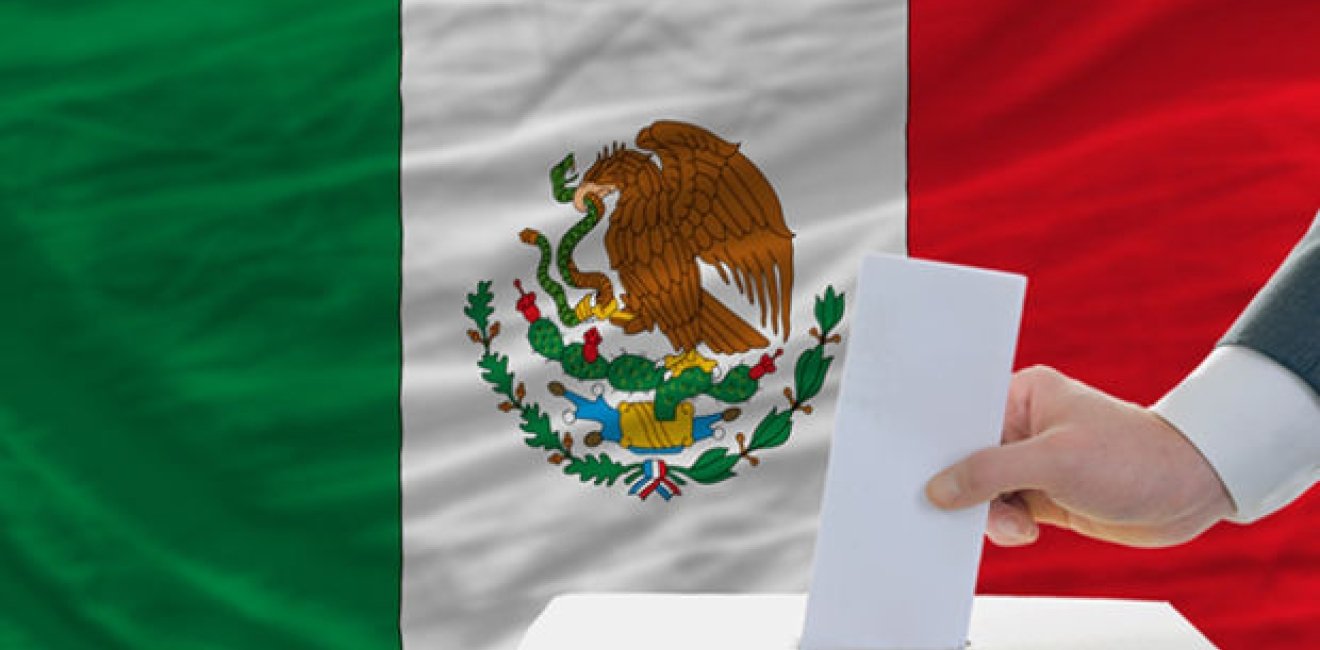The Most Important 2018 Election for America May Be Mexico's
The next government in Mexico will determine the extent of ongoing cooperation with the United States and whether or not the friendly nature of bilateral relations will continue.
The next government in Mexico will determine the extent of ongoing cooperation with the United States and whether or not the friendly nature of bilateral relations will continue.

On July 1, 2018, as many Americans reluctantly begin to think about the forthcoming midterm elections, and with the primary season in full swing, another non-U.S. election will occupy the minds of policymakers in Washington and a number of state capitals. On that day, Mexicans go to the polls to elect a new president, 128 federal senators, five hundred federal deputies and nine state governors, as well as mayors and state congressional representatives. For most Americans, this election will be just another item in their news feed, but it may also turn out to be a more significant political juncture for the United States—more so than anything else that might happen in 2018.
Though Mexico has been in the headlines in the United States for the past two years, first as an issue in the 2016 election campaign and then as grist for the mill in the Trump administration’s trade agenda, most Americans remain shockingly unaware of the importance of the bilateral relationship that the United States maintains with its southern neighbor. Although it is true that there is a substantial trade deficit with Mexico, it is the United States’ third largest trade partner (in 2016 this amounted to almost $600 billion), the second largest importer of American goods and services, and it is the first or second export market for twenty-nine states. The United States has substantial surpluses in the bilateral energy and services trade. Mexico is also a crucial element in the North American manufacturing platform that guarantees the competitiveness of thousands of American firms, and is directly tied to almost five million U.S. jobs. Additionally, in recent years Mexico has become a critical partner in protecting the United States from terrorist threats, as Mexican and U.S. officials have worked ever more closely on intelligence and information sharing.
What is most surprising for many people is Mexico’s changing connection to U.S. immigration. Although Mexico was the largest source of illegal immigration flows during the first decade of the twenty-first century, there is now net negative Mexican migration, meaning that there are now more Mexicans leaving the United States than arriving. Furthermore, Mexico has become a reliable and crucial partner in controlling flows of Central American migrants: for the last two years the Mexican government has deported more Central Americans during their journey across Mexico than the United States has from American territory.
For all these reasons, July’s election will have far-reaching implications for the United States. The next government in Mexico will determine the extent of ongoing cooperation with the United States and whether or not the friendly nature of bilateral relations will continue. Although bilateral affairs have been transformed over the past thirty years from enmity to friendship and partnership, continuity is far from guaranteed. While it is true that the majority of the contenders profess an amicable approach to Washington, the current front-runner has a complicated relationship with the United States and is perhaps the most stridently nationalist.


The Mexico Institute seeks to improve understanding, communication, and cooperation between Mexico and the United States by promoting original research, encouraging public discussion, and proposing policy options for enhancing the bilateral relationship. A binational Advisory Board, chaired by Luis Téllez and Earl Anthony Wayne, oversees the work of the Mexico Institute. Read more


